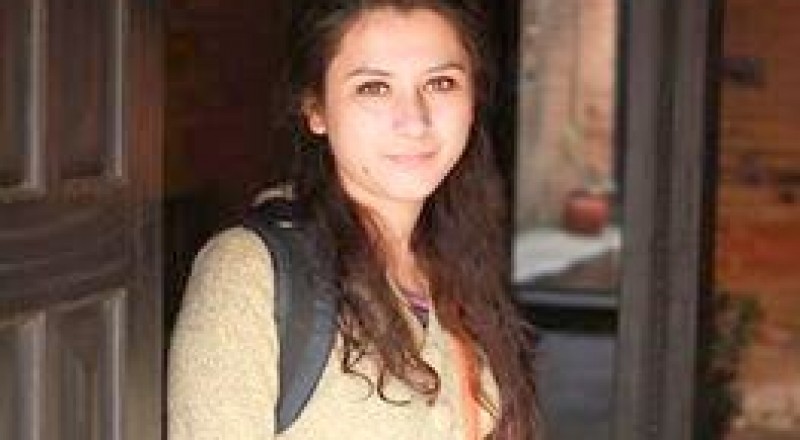Kritagya Regmi, Assistant Communications Officer at HERD shares her experience of a recent field visit to Rupandehi with MDR-TB project team.
I joined the MDR TB project team (Sudeepa Khanal, Pradip Thakali and Ian Walker) in their field visit to Rupandehi from 26th to 29th April. Like any other new visits, this trip had some new experiences as well as new learning for me.
The humid weather welcomed us in Bhairahawa on Tuesday evening. By the time we reached Butwal, the temperature had gone down and it wasn’t very hot and I had no idea how the second day was going to be like. We had a small meeting that day where another team member based at Rupandehi, Sanjeev Singh joined us. As we had specific tasks assigned, we made the planning for the next three days.
Next day we left at 9 am, this was my first visit to Lumbini Zonal Hospital. As the other team members started their work I took some time to observe the hospital. I went to see the lab in the beginning. There were many patients queuing for tests. I moved aside and started taking pictures. After a while a patient carrying sputum in a jar came in front of me, I became confused, then the lab assistant asked me to move aside. It was only then that I realized there was a container behind me where the sputum was being collected for test. I became very nervous and disappointed at the same time as there was no sign board kept there. I talked to the lab assistant, stood there for a long time and observed the patients.
Sputum being collected in a jar
Then I went at the Directly Observed Treatment, Short Course (DOTS) clinic and observed the conversation of health workers and the patients. I also saw the patients looking for Sanjeev, who has been working as a researcher/counsellor providing counselling to MDR TB patients who have psychosocial issues for MDR-TB study. They talked to him openly as if they were talking to their friends, shared their problems. For me this was an example of how a positive attitude helps connect patients and service providers.
The scenario was all new for me. Most of the new patients who were asked to conduct sputum test were confused. Some of them were so unaware about the disease that they didn’t know that they have to wear a mask as it is a communicable disease. Those continuing the medicine had their own issues; they had to visit the DOTS clinic every week to receive the medicine. They couldn’t go out for long as they cannot miss the medicine. The patients ranged from teenagers to elderly. Some came to administer the injection; it was heartbreaking seeing then being injected outside in the bench in open. There was no privacy and even if they were not comfortable they had no other option.
We visited MDR-TB hostel which was located 7 km away from the hospital. The hostel was located near the highway. I was there to interact with the patients and know their story. I talked to the hostel In-charge and some patients. Hearing them made me more familiar to the issues they have been facing. I had interacted with some MDR-TB patients earlier and talking to them was surely helpful for me to know their insecurities and concerns better. Staying away from the family was tough but knowing that you are not alone there are many facing the same issue has given hope to numerous MDR TB patients.
The next day I wanted to talk to some MDR TB patients who have been receiving treatment staying outside the hostel. So I stayed at the hospital waiting for the patients. I had just finished an interview with a patient who had been receiving treatment staying home. As I entered the clinic, I could sense the happiness of a patient receiving his last medicine for his MDR TB treatment. I talked to him and his wife and it was different, they shared a happy moment with me. They shared their experience, their troubles, the fear they had but the ending was joyful. I talked to a cured TB patient and learnt how life has changed. I also talked to the health workers and observed their group counselling session.
TB treatment centre at Lumbini Zonal Hospital
For me, the trip was very productive as I witnessed the ground reality of the health situation in Nepal. I interacted with the people who were struggling to fight against the disease. Life isn’t easy and for these patients who were struggling to run the entire family it was tougher. Some left their job and education but they continued the medicine. Among the patients there was a light of hope that they will be cured. Some joined the work after few months as they didn’t want their family to suffer. Some of the patients also seemed irritated and angry that the duration of the treatment was long. They didn’t come to the DOTS clinic to take medicines, for them some family members, friends collected the medicine. It was the support and love that was helping them tackle the disease. I also saw the happiness the patient feels on the last day of the medicine; the joy when they start living the normal life after being cured.
MDR-TB patients needs to be provided with special care and attention. We all need to extend our helping hand in providing them psychosocial and other forms of support.



Comments(0)
No comments found.